As a mom, it isn’t always possible or practical to get to the gym everyday. I’m also not a fan of long hours on the treadmill, especially since high intensity short workouts and weight training have more health benefits. I prefer at home workouts when possible and often my kids workout with me.
My personal workout routine is to do the following each week:
- weight training with really heavy weights 2 times per week – pullups, deadlifts, squats, lunges, etc
- High intensity 1-2 times per week – sprints, burst training, etc
- other form of movement 2-3 times a week – martial arts, walking, swimming, etc
I train at my brother-in-law’s house on days that I do weight training since they have lots of free-weights, but the other days I do at-home workouts.
These are five easy ways that I try to work movement in to my day (and that my kids can do too):
Kettlebells
I’m a big fan of Kettlebells because they can be easily used at home in a short amount of time and they don’t take up much room (unlike, say, a Bowflex…). You’d be surprised how intense your workout can be from just a cannon ball with a handle, but kettlebells can give you one of the most intense whole-body workouts you’ve ever completed.
The Russians have used kettlebells to train their elite athletes and secret service for years and now even because they give great strength and definition and don’t add any bulk for women.
My two favorite kettlebell workout are Swings (video how to in this post) either in intervals (30 seconds of swings, 30 seconds of rest, and repeat for 5 minutes) or just doing 75-100 swings without rest with the heaviest kettlebell I can use with good form.
In the name of full disclosure… kettlebell workouts are HARD, but that is why they are so effective. Because of the combination of strength and high intensity cardio, even the most seasoned athletes have trouble lasting five minutes when switching to kettlebells.”
You can find kettlebells almost anywhere now, and even order them online. I started with a 20 pound kettlebell and now use 35-55 pound kettlebells. The best part, they are basically just a canon ball with a handle, so they are compact and easy to store, even if you don’t have much extra space.
This post has a video tutorial on how to do kettlebell swings.
Rebounding
I must admit, when I first heard or rebounding, I thought it sounded a little crazy. Now that I’ve tried it, I see why it has such a loyal fan base. Rebounding is basically jumping on a mini trampoline and it has a myriad of health benefits including:
- Helps promote lymphatic drainage
- Supports liver health
- Good for bones (weight bearing movement helps strengthen them)
- Helps cellular cleansing
- Improves endurance
- Helps with digestion
- Helps the body detoxify on a cellular level
The idea of rebounding is that by bouncing on a mini trampoline in different ways, a person can make use of the rapid acceleration and deceleration to increase blood flow, oxygenate the body and improve muscle tone. Rebounding is also more fun (in my opinion) than running for the same amount of time and it is a better workout. There are sample rebounding workouts online, but all it takes is jumping (fast, slow or alternating) for 20 minutes once a day.
I try to work this in each morning and it definitely helps boost energy levels! My kids also love bouncing on the mini trampoline and often bounce on it while learning or on rainy days when they can’t go outside.
Often, mini trampolines can be found on Craigslist or at yard sales. If not, there are several good rebounders available online, (like this one that is 50% off right now or this one that has really high reviews and is silent).
Pull-ups
Often, like when I’m pregnant or early postpartum, I can’t do actual pull-ups and stick to dead hangs or negatives, but the act of doing pull-ups or working up to them is very beneficial to the body. Pull-ups are also one of the most functional exercises you can do and it helps stretch out muscles/spine and strengthen the core.
Even if you can’t do pull-ups right away, you can start where you are and work up. Mark Sisson has a great video tutorial for how to work up to pull-ups here.
I have this pull-up bar hanging in my bathroom doorway and just make a point to do pull-ups, dead hangs or negatives every time I go through that doorway. This is an easy way to get the benefits of pull-ups throughout the day.
T-Tapp
I’ve reviewed T-Tapp workouts before… from that post:
“I’d heard T-Tapp mentioned in several places online before and was skeptical. When I saw “bio-hackers” like Bulletproof Exec mentioning the T-Tapp system and claiming that it:
- “Is the fastest weight loss workout we’ve ever seen
- Detoxifies the body
- Increases insulin sensitivity, which promotes loss of excess weight
- Reduces stress
- Skyrockets energy levels and mental clarity
- Boosts metabolism
- Improves cardiovascular function
- Helps the brain gain better control over the body (builds neurokinetic function)
- Takes just 15 minutes””
I still use T-Tapp at times and it is an easy and simple workout that can be done at home in a short amount of time. My kids actually think it is hilarious and some of them will workout with me.
Pilates
Pilates are another easy and low-impact workout to do at home. There are many options available (from prenatal Pilates to Pilates for advanced athletes and everything in between.
A couple of my favorites are this beginner workout and this rapid result workout. Pilates DVDs cost much less than gym workouts and the kids have fun doing them with me.
Do you workout at home? What is your favorite at-home workout? Share below!
It can be hard to make time for exercise. I get it. With a busy family, a household to maintain, meals to cook and work to do, it isn’t always at the top of the priority list. I’ve found that if I concentrate on fast workouts that provide maximum benefit, I’m more likely to stick to them.
Statistically, getting regular exercise is one area that many of us are not doing, and despite the multi-billion dollar gym and training industry, it isn’t always something that requires a gym membership or expensive equipment. I have a couple pairs of minimalist/barefoot shoes and a kettlebell, and these have served me better than a gym membership ever did because it isn’t about the equipment as much as it is about actually just doing it and learning to enjoy it!
The good news is that exercise can be incorporated into daily life rather than being something for which you must set aside time. Things like kettlebells can make a fast 5-minute home workout easy to sneak in while cooking dinner, or you can do a full set of Tabata sprints in 4 minutes (and they’ve been found more effective than long distance running for both weight loss and increasing fitness level!).
We can all manage to find 5 minutes a day to sneak in some kind of movement, and it doesn’t have to be daunting. Here are a few of my favorite fast workouts that I do each week:
Sprints
Sprinting can be much more effective than distance running and it takes much less time! This is one case of definite quality over quantity.
I use a modified Tabata routine interspersed with a longer rest routine. I usually run one set of Tabata sprints (sprint 20 seconds, rest 10, repeat for 4 minutes) followed by a long rest period and a 30 second sprint followed by a 60 second rest (repeat 8 times). Followed by another set of Tabatas. In case that was confusing, here is a broken down version:
- Sprint 20 seconds
- Rest 10 seconds
- Repeat above two steps 8 times
then
- Sprint 30 seconds
- Rest 60 seconds
- Repeat above two steps 8 times
then
- Sprint 20 seconds
- Rest 10 seconds
- Repeat above two steps 8 times
These could be done running, on a stationary bike, with kettlebells, or any other activity that can be done quickly. I don’t recommend swimming for sprints because it doesn’t have the benefits of weight bearing exercise. You could also use any one part of that, and even just one 4-minute burst would be beneficial!
Strength Training
I am a big proponent of exercise that utilizes body weight as it can be done anywhere, it can be done relative to your fitness level, and it is less likely to cause injury than free weights (especially if weights are done with bad form!). Body weight exercises can also be done quickly and without any added equipment, making them perfect for a workout while the kids are napping. I do a total of about 20 minutes each time I do strength, though work up to more, or start with less as needed. I focus primarily on the following exercises:
- Pull ups -These can be done on a tree branch or a portable pull up bar in a door frame. Start with assisted pull ups if needed.
- Push ups -Start with wall push ups or “girl” push ups if you need to work your way up. Work up to doing them with your feet elevated or in a handstand.
- Squats– Start small if you need to and work up to a full squat.
- Planks– One of the best all-over exercises you can do. Rest on elbows, forearms and toes. Hold as long as possible. Repeat several times. Once you can do this, mix it up by raising one arm or leg and holding the position or by holding in a low-push up position instead of resting on forearms.
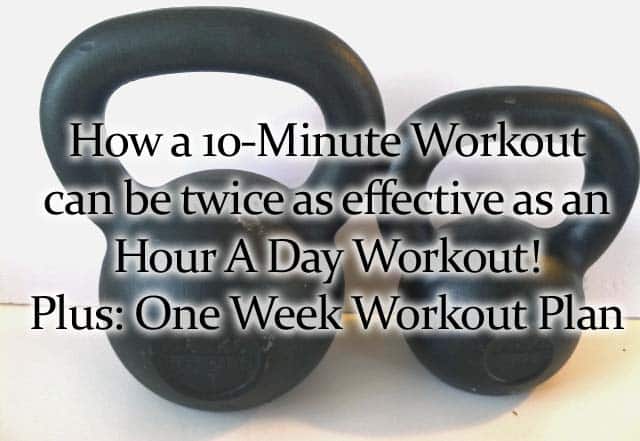
10-Minute Workout Plan
In my quest to find effective at-home workout plan, I’ve seen multiple studies showing that high intensity exercise (sprints, etc.) and weight training are twice as effective as running, jogging or cardio not only for weight loss and muscle tone but also for boosting metabolism and healthy hormone production.
In fact, more and more olympic and professional athletes use high intensity interval training as part of their regiment.
For me, the appeal of High Intensity Training is that you can’t do it for very long (and don’t need to) so by its nature it is a fast workout that I can squeeze into my day. For me, this means sprints, weights and kettlebells in a weekly rotation. I also don’t have time to go to a gym everyday, so I focus on ways to incorporate these exercises at home. I wanted to find some 10-minute workout ideas i could do at home and this is the system I started using…
From a recent guest post I wrote at Breaking Muscle:
To qualify for my at-home training regimen, an activity has to meet the following criteria:
- It must require minimal equipment and space
- It must be doable without leaving the home/neighborhood
- It couldn’t require a partner
- It couldn’t take more than 20-30 minutes a day.
- There most be some version of it that my kids could do also (this part was semi-optional, but still important)
From this list, I developed a list of possible activities that could fit in to a 10 minute workout and have refined them to meet my needs. My favorite fitness activities based on those criteria are:
- Kettlebells– meet all the criteria perfectly. They take up very little space (under my bed), I can do a workout quickly at home, and the kids can dead-lift the smaller size kettlebells.
- Pushups, pull-ups, chinups, planks, burpees, goblet squats and other body-related exercises.
- Occasional high intensity sprints – when weather allows and I have the time. I use a jogging stroller for this one.
My at home “gym” consists of various size kettlebells, a door mount pull-up bar, 25 and 35 pound dumbbells for squats and lunges, and various children (weighing 20-45 pounds) who are happy to assist in weighted pullups and pushups!
An average workout program with these elements would consist of two days of high intensity kettlebell training per week, two to three days of weight related exercises, and one day of high intensity sprints if weather allowed.
I’ve recently added deadlifts at a neighbor’s home gym, though I only do these once a week.
A weekly workout schedule would look like this:
Monday:
- Deadlifts: 2-3 sets of 5-7 reps
- Chin-ups: 2-3 sets of 5-7 reps (started these with assisted or negatives to work up and now working up to weighted)- I love this pull-up bar.
- Turkish Get Ups with kettlebells: 2-3 sets of 5-7 reps
Tuesday:
- Kettlebell swings 75-200 swings without rest using maximum weight kettlebell that allows maintained form.
Wednesday:
- Pushups: 2-3 sets of 5-7 reps (starting with wall pushups if needed and working up to handstand or negative incline)
- Dumbbell press: 2-3 sets of 5-7 reps
- Burpees: 20-50
Thursday:
- Kettlebell swings 75-200 swings without rest using maximum weight kettlebell that allows maintained form.
Friday:
- Goblet Squats: 2-3 sets of 5-7 reps of maximum weight with maintained form
- Weighted lunges: 2-3 sets of 5-7 reps with maximum weight with maintained form
- Pull-ups: 2-3 sets of 5-7 reps (starting with negatives or assisted and working up to body weight or weighted pullups)
Saturday:
- Hike with family or high intensity sprints if weather allows, or rest day if needed.
Sunday:
- Rest day
Mastering the Perfect Pushup
No longer just an exercise for football and the military, the Pushup is a great upper body workout that can be done anywhere. The push-up involves full range of motion in the shoulder and is great at strengthening arms, shoulders, core and back if done with correct form. It tones the arms and helps with lifting heavy things (like toddlers pitching tantrums). While it was the bane of my existence in gym class, I have learned to love the push-up as a versatile part of my workout.
A full push-up with good form can be a daunting thought for someone who hasn’t done one in a while (like me when I started them!). Form is important, as with any exercise, to minimize risk of injury and maximize effectiveness. Proper push-up form includes:
- Hands positioned just outside the shoulders and directly below the shoulder line.
- Feet should be together
- Body should be in perfect line from heels to head, such that a broomstick along the body would touch your head, upper back, buttocks and heels
- Core and glutes should be engaged and tightened
To do a push-up:
- Once in position above, lower body to ground, lowering yourself enough to at least get elbows to 90 degrees, and touch chest to ground if possible.
- Raise your body back up by straightening your arms but do not straighten fully and lock elbows.
- Repeat, a lot!
- No matter what, keep the plank position with your body in line and core tightened.
For those of you (like me!) who can’t do the regular push up at first, there are variations that can be done to help you work up to full push ups. You will probably be surprised how fast you progress in these different variations until you can do handstand push-ups (yeah, really!).
1. Wall Push-Ups
If you haven’t done push-ups in a while (or ever) start with the wall push-up. This is the least difficult variation. Start by standing with feet together about 1-2 feet from a wall. Place your hands flat on the wall at the level of your shoulder and a little more than shoulder width apart.
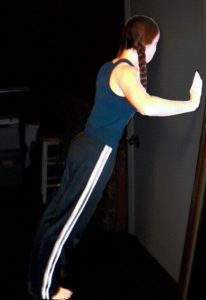
Bend your arms at the elbows to lower your body toward the wall until your head touches the wall. Raise your body back up by straightening arms. Remember to keep abs and glutes tight throughout.
2. Incline Push-Up or “Girly” Push-up
Once you have mastered the wall-push up, move on to the incline or “girly” push-up. there are two options in this stage. You can put your hands on a bench, couch or chair that is a couple feet off the ground with feet together and body straight and lower yourself to the bench and back.
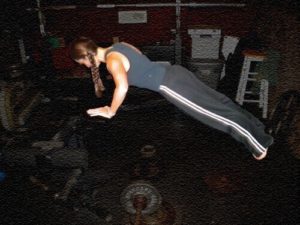
The other option is the “girl” push-ups of gym class of old: put your knees on the ground, bending them at a 90 degree angle and complete a push up like you would a regular one with body straight and abs/glutes tight.
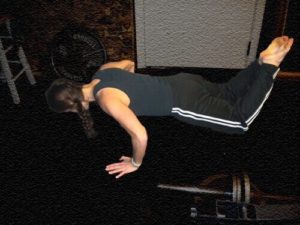
As soon as you master those, and it won’t take long… it is on to the regular push-up!
3. “Regular” Push-up
This is the push-up you see in movies and probably had to do at some point in school. Use the proper form above: feet together, hands under shoulder line and slightly more than body width apart, and straight line throughout body. Lower your body until chest touches ground, straighten arms until almost completely straight but not locked and repeat.
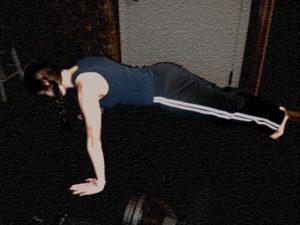
Thought push-ups ended there? I did too, but no, there are tougher variations!
4. Reverse Incline Push-Up
Now that you’ve mastered the regular push-up it is onward and upward to reverse incline push-ups. As the name suggests, instead of having your hands on the bench, chair or couch, your feet go on it. Place your feel on a study object a foot or two off the ground. The higher the object, the more difficult the push up. Keeping feet together, hands shoulder width apart and body straight, lower your body until your head touches the ground and raise yourself back up. Repeat, because it’s fun!
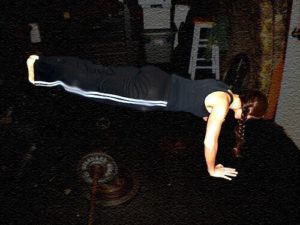
If you’ve mastered that, there’s no stopping you… it’s on to the toughest push-up of all.
5. Hand Stand Push-Up
Hand stand push-ups give you the most effect for your time (which is a big criteria for me!). As the name suggests, you do them on your hands… I do them in the kitchen while cooking sometimes. Find a strong wall or door (without glass!) and stand about two feet away. Bend forward, placing your hands on the ground, slightly more than shoulder width apart, with finger tips touching the baseboard or bottom of the door. Raise yourself up by slightly kicking your lower body up so that you are in a handstand position. Lower yourself down until head almost touches the ground, and raise yourself back up. Repeat.
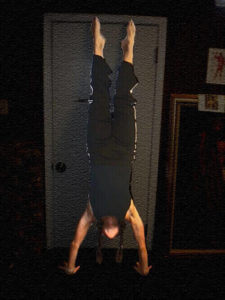
I started out with the “girly” pushups, but the feeling of accomplishment from doing full push-ups or pull-ups is great!
Pull-Up Challenge

I mentioned on facebook the other day that I needed to work back up to pull-ups after having a baby and asked if anyone wanted to join me. A lot of you said you would, so I’m issuing an official pull-up challenge!
For clarity, the person in the picture above is my brother-in-law, as I’m not back up to pull-ups yet and the setting was a lot nicer than the pull-up bar on the door of my closet! 🙂
The Elusive Pull-Up
Why a pull-up?
Glad you asked… I’m personally not a fan of gym type cardio that just burns calories but isn’t very functional. For me, fitness is/should be about having functional strength when it is needed, rather than being a certain size or shape. In fact, I’d rather keep some curves and have a higher level of strength than be model-thin and unable to pull my husband or other adult out of a burning house/car, etc if I ever needed to.
There is a higher possibility that at some point I will need to sprint away from an animal/attacker etc or pull myself over something in a similar situation than that I will have to run 26.2 miles at one time. Functional training is what it’s all about.
The pull-up is also considered a true measure of strength by many trainers and with good reason. Completing a correct pull-up uses all the muscles of the back and arms and is a very effective upper body exercise (even though the NY Times doesn’t think women can do them). Certainly, pull-ups are tougher for women since we don’t have the natural upper body strength that men do, but they are possible. Women tend to be naturally better at lower-body exercises like deadlifts, but have to work harder at pullups (for instance, I can not do a pull-up right now but can deadlift more than my body weight).
This article provides some specifics:
What’s the difference between a pull up and a chin up? Is one better to do than the other?
Let’s keep it simple:
Pull ups: palms face away from you with a wide grip.
Chin ups: palms face you and the grip is generally just outside your shoulders. Chin ups are considered a slightly easier pull because the arms play a bigger role in the game. Pull ups are often considered harder, especially if your shoulders are internally rotated or across the board if you have not developed lat strength, the main power source for your pull.
Here’s what I say: It is the main job of the lats, the layman’s term for the broadest (latissimus) muscle in your back (dorsum), to bring your elbows into your ribs regardless of the grip. If you can’t do at least one of either type, pick the grip that feels most natural right off the bat and go with it for a while. I WILL advise you to try both during your pull up journey.
Can girls really do a pull up?
If that girl trains hard with a goal, yes! And that goes for that guy over there who can’t do one either! To give some perspective, in a deadlift you get to use your entire posterior chain. It’s the most commonly met goal for both men AND women, deadlifting your bodyweight. A pull up is limited to your upper body as the power source and you’re asking it to lift your bodyweight. It’s possible; it simply requires training, time and tenacity. Simple does not equal easy! Having this mindset will help immensely.”
And I love this encouragement for women and pull-ups:
“But you should want to be able to do pull ups. Because not only do they work your arms, shoulders, back, and core muscles wonderfully, they also give you a serious sense of confidence like you wouldn’t imagine.
I love telling people I can do pull ups. Especially as a woman, it’s pretty empowering. And people love it when I whip out 5 to 10 at a time on a whim.
But if you think you can never do a pull up, think again. Because if you follow the progression of exercises below, you’ll build the strength necessary to be able to do one, two, maybe even ten pull ups.”
The Pull-Up Progression
Another great thing about pull-ups is that they take minimal or no-equipment. No pull-up bar? Just use a tree branch or the monkey bars at a local playground. If you want to make it a tad more convenient, there are some great options for at-home pull-up bars that hang on a door frame without any need for nails or brackets. (This is the one we have and it is wonderful!)
You can absolutely work up to pull-ups with no need for extra equipment, but it is often helpful to start with similar exercises that build the muscles as not many people will be able to complete a pull-up on the first try if they’ve never tried.
The following exercises are in order of difficulty from easiest to most difficult, so start at the most challenging exercise you are able to complete.
The Row
If you are new to weight training and have never even tried to do a pull-up, this is where you will want to start. You can do this with progressively heavier objects and work up before moving on to the next step. The video below uses a sandbag for rows, but you can do these with gallons of coconut oil or vinegar, a bag full of heavy objects or any heavy item you can grip.
How to Perform a Row
- Stand with feet shoulder width apart and bend over at the waist with the heavy object in your hands
- Pull the object toward your chest at a slow pace
- Slowly and carefully return the object to its original position
- Repeat
Here’s a video for clarity:
Bodyweight Rows
If you can already complete basic rows, the next step would be bodyweight rows or reverse pushups. The idea is that instead of pushing yourself up, you’ll be pulling yourself up from a hanging position. This is often done on a low-hanging bar like a dip-bar. At home, you can use a sturdy pole across two chairs or even the under-side of your kitchen table. Make sure whatever you use is sturdy enough to hold you and have a spotter!
What do do:
- Position yourself under the table or bar so that you are hanging but with body straight in an upside-down push-up position
- Carefully pull yourself up to the bar/table
- Slowly lower yourself down
- Repeat
Here’s a video for the visually inclined:
The Real Deal
Once you’ve mastered reverse push-ups, you can move on to basic assisted pull-ups. The typical progression is:
- Band-assisted pull-ups
- Reverse/Negative pull-ups
- The real thing
Here is a video from Mark Sisson demonstrating the progression:
Notes:
Chin-ups would use the same progression but with palms facing inward instead of outward.
It is great to work up to pull-ups and chin-ups at the same time.
For many women, it takes months to work up to a single pull-up but progressing with additional pull-ups will be easier.
Make sure to do everything with good form and move at your own pace to prevent injury.
The Challenge
I officially challenge you to learn how to do pull-ups and chin-ups. They are incredibly functional movements and your body will thank you!
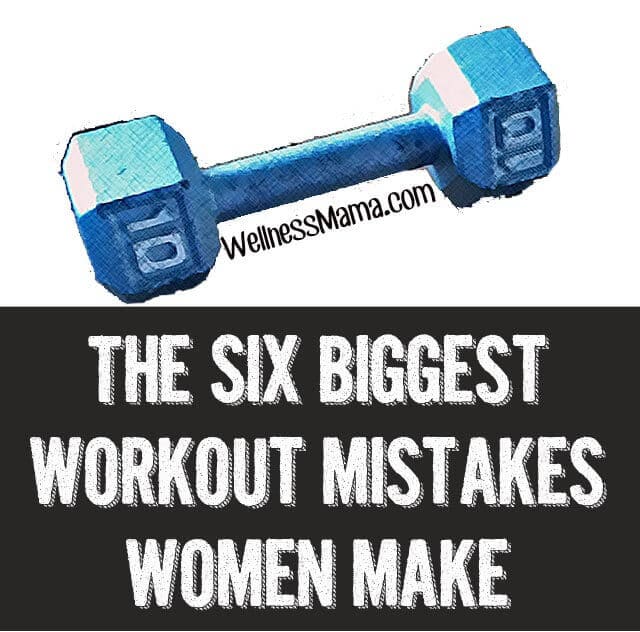
Biggest Workout Mistakes Women Make
With all of the things that you have going on in your life, it is perfectly normal to feel overwhelmed and like you just don’t have time to workout! I continuously run into the same frustrations and setbacks with client after client. Maybe you can relate?
Biggest Workout Mistakes
Are you are sick of wasting hours of your life doing cardio?
Are you frustrated because you workout and don’t seem to get the results you deserve?
Have you read and heard enough conflicting information in the media to absolutely make you crazy?
Unfortunately, this is the norm and you are surely not alone. I have identified the top six workout mistakes that I see women making on a daily basis. When you take action and avoid these mistakes, I promise that you can improve your body with less work, less time, and far less frustration!
Too Much Cardio
You need to avoid steady state cardio and shock your body! Get off the treadmill and the elliptical and start mixing things up. Increase your workout intensity, but lower your duration.
Try something fun and new (kickboxing, circuit training, sprints, or play a new sport) and continue to switch things up to keep your body guessing. By lowering the amount of traditional steady state cardio, and replacing it with higher intensity and shorter duration exercise, you will actually improve your hormonal state and your body’s ability to burn fat and build lean muscle.
Ignoring Weight Training
I understand that you are afraid to get “bulky” and lose your feminine look, however you need to throw this fear and misconception out the window. Strength training is extremely beneficial for your bone health and overall long-term health.
Additionally, lean muscle will improve your body composition and help you burn fat faster than cardio. One key ingredient is finding the proper environment or facility to learn to strength train and losing your false insecurities that others in the gym are watching you or judging you. More about this later…
Trying to Isolate Your Abdominals
I understand that you want your abs to look like Cameron Diaz! However, your abs are made in the kitchen with a great diet and not by performing an insane amount of isolated abdominal movements.
As you begin to strength train, you will want to do multi-joint functional movements (Ex: squats, dead lifts, pull-ups, kettle bell swings) where your abs are engaged throughout the entire workout. Fortunately or unfortunately, all of the isolation crunches, bends, twists, etc. will never out do or overcome a poor diet.
More is not Better
It is absolutely important to work hard in the gym and get after it. However, you need to also listen to your body and work to develop a set training schedule. If you are overtraining and pushing your body too far, more time in the gym will not equal better or faster results.
Lack of sleep and too much training is counter-productive to your results because you will be putting your body in a poor hormonal state and you will be taxing yourself mentally as well. As previously mentioned, shorter and more intense workouts are the best way to burn fat and build lean muscle.
Carbohydrate Loading Before Workouts
There are many misconceptions about carbohydrates, but most experts would agree that lower to moderate carb intake is effective to get lean. We must also understand that athletic performance is different than weight loss and training for body composition. If your primary purpose is to get a lean fit body, then stop eating carbs before your workout.
Try working out on an empty stomach in the morning or if you need to have a snack try eating something with just protein and fat in your pre-workout meal. Many people will get leaner and feel better with ketogenic, low carb, or cyclic low carb diets. Here is a good video that explains the pros and cons of carb consumption for working out.
Setting Unrealistic Expectations
You can’t be so hard on yourself and you must understand that your body will not change overnight and you need to be patient. Changing your body or anything in your life will take consistent effort over time and you must have a plan and stick to it. You must immediately stop your obsession with the scale and instead notice how you feel, how your body looks in the mirror, how your clothes fit, and how you perform in life on a daily basis. Set a realistic time frame for your goal.
I would recommend setting a date of at least six weeks and preferably eight to twelve weeks before you judge your results. You must also remember that diet, sleep, and stress are arguably even more important than what you do in the gym. So make sure these aspects of your life are also in check so you do not sabotage your well deserved results!
Action Steps
In order to take this information and put it to good use in your life today, you will need to do several things: Get a workout plan that involves variation and has a focus around strength training. You must find an environment that you are comfortable in and hire a coach that can properly teach you new things. If you have budgetary constraints, start by reaching out to an experienced and “fit friend” for some initial guidance. Have realistic expectations and set goals for at least six weeks out and avoid the mental traps of the scale. Have equal focus on your diet, sleep, and stress levels so you can get the results that you deserve from your workout program. Moving towards a real food diet will be a great start. Now you have specific action steps to move forward today and you can begin working smarter and not harder towards the body or your dreams.
How do you squeeze fitness into your day? Do you involve your kids? What has been your biggest struggle with trying to get in shape? Share below!
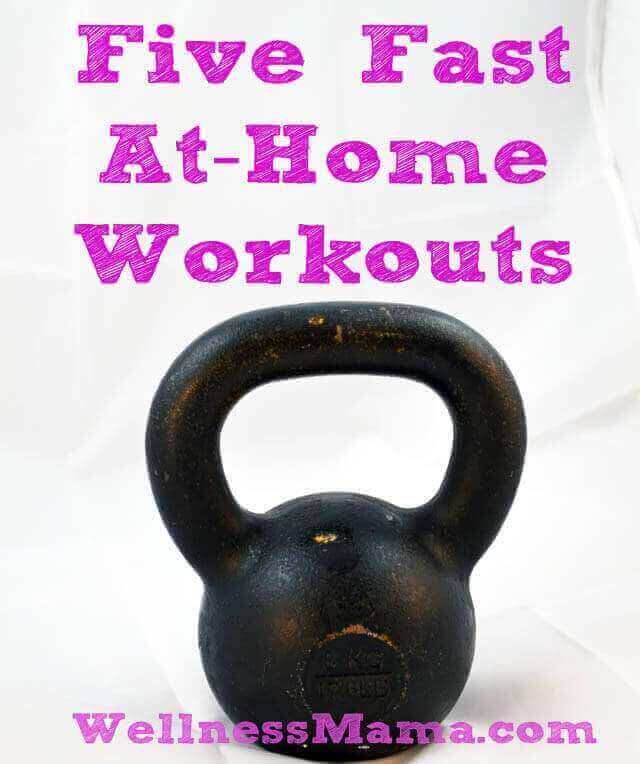

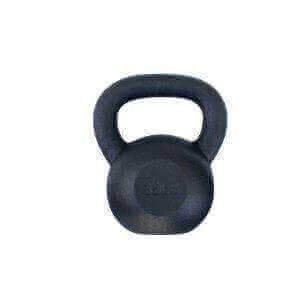


Leave a Reply